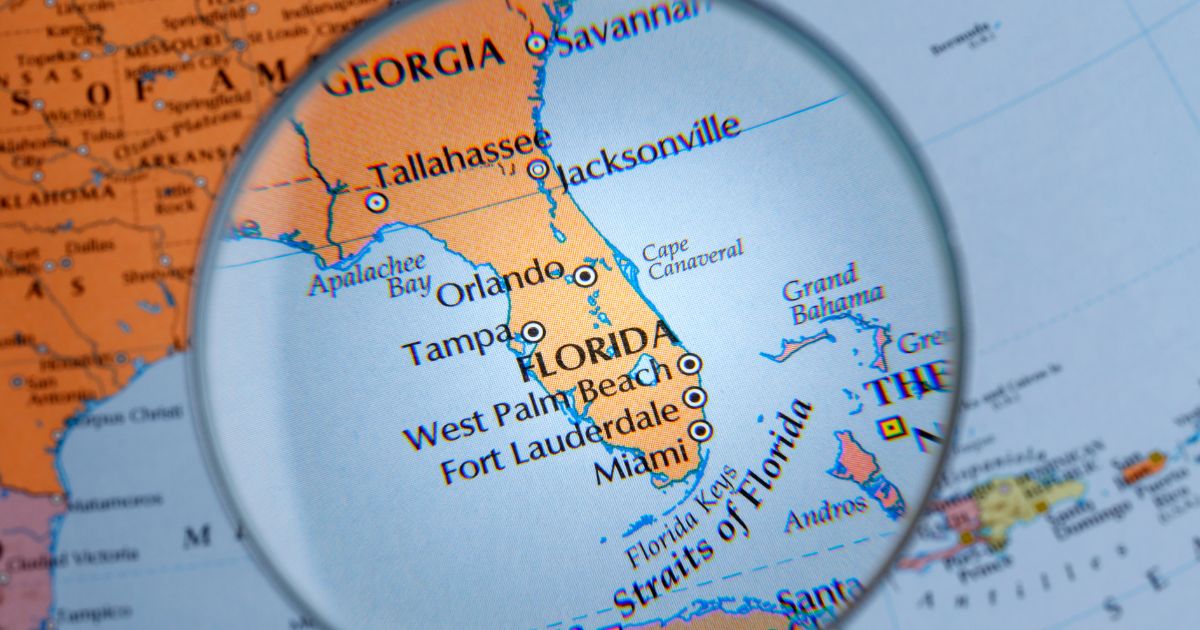Members of Congress have called for a federal investigation into a controversial use of state Medicaid funds to oppose Amendment 3, a Florida ballot initiative that attempted to legalize recreational marijuana last year. Florida Representatives Kathy Castor and Darren Soto have formally requested this inquiry, claiming that officials improperly diverted funds originally meant for healthcare services to political campaigns opposing recreational marijuana legalization in Florida.
Allegations Surrounding Medicaid Funds Used To Fund Campaigns Against Florida Marijuana Legalization
At the heart of the controversy is a $67 million legal settlement between the state of Florida and Centene Corporation, Florida’s largest Medicaid managed care operator. This settlement aimed to address allegations of overbilling taxpayers. However, reports claim that officials directed $10 million from the settlement to the Hope Florida Foundation, founded by Casey DeSantis, wife of Governor Ron DeSantis.
Critics argue that a significant portion of this money was funneled to political groups opposing Amendment 3, which sought to establish a legal framework for adult cannabis use. Key figures from the case suggest that $8.5 million of the funds ended up supporting campaigns run by the Keep Florida Clean PAC, an organization linked to Governor DeSantis’s former Chief of Staff, James Uthmeier.
Several organizations, including Secure Florida’s Future and Save Our Society from Drugs, received the donations and advertised against Amendment 3.
Why Members of Congress Are Concerned
Representatives Castor and Soto, both members of the House Energy and Commerce Committee, emphasized the federal government’s role in Medicaid oversight. They argued that misusing taxpayer funds undermines the program’s ability to serve vulnerable communities. Medicaid dollars are federally mandated to fund medical services for low-income individuals, including children, people with disabilities, and pregnant women.
The lawmakers cited possible violations of federal statutes, including health care fraud and conspiracy. They stressed that such diversions reduce the resources available for Medicaid beneficiaries and programs that rely on state funding to operate effectively.
Political and Ethical Implications
The allegations carry significant political undertones. Governor DeSantis was a vocal opponent of marijuana legalization, and Amendment 3 posed a direct challenge to his administration’s stance on cannabis. His opposition was in contrast to the strong financial backing Amendment 3 received from cannabis operators such as Trulieve.
Amendment 3 failed to pass in the 2024 election, falling short of the 60 percent voter threshold required for constitutional amendments in Florida. Despite the setback, efforts to legalize adult-use marijuana persist, with advocates already gearing up for a second attempt on the 2026 ballot.
Beyond marijuana legalization, this controversy has brought to light larger concerns about financial transparency and political influence. The intricate web of nonprofit organizations and political action committees used to transfer funds raises questions about the ethics of using charitable and settlement dollars in politics.
The Florida House conducted an initial investigation into the matter but concluded that federal authorities were better positioned to evaluate whether these actions violated any laws.
Castor and Soto’s letter to the U.S. Department of Health and Human Services (HHS) and the Centers for Medicare and Medicaid Services (CMS) urges an immediate investigation. They argue that without federal scrutiny, taxpayers’ trust in Medicaid’s mission could be undermined.
How Will This Investigation Impact Florida’s Recreational Marijuana Legalization Landscape?
The controversy arrives at a critical moment for the cannabis movement in the U.S. While public support for marijuana legalization grows, regulatory barriers and political resistance remain significant obstacles. Florida lawmakers also recently blocked multiple medical marijuana expansion bills, signaling a challenging environment for reform advocates.
Governor DeSantis’s opposition to Amendment 3 is part of a larger pattern of actions targeting cannabis and related reforms, including tightening rules on ballot petitions and restricting intoxicating hemp-derived products. These measures have further motivated proponents of Florida marijuana legalization, who argue that restricting access to regulated cannabis markets can drive consumers toward unregulated and unsafe alternatives.
If this evolves into an investigation, the outcome could have implications beyond the DeSantis administration. A transparent review of Medicaid fund usage could set a precedent for financial accountability in both healthcare and political funding. For Florida’s cannabis advocates, a favorable resolution might clear some political roadblocks ahead of the next legalization effort.
Whether or not federal authorities find wrongdoing, this case illustrates the intersection of financial regulation, politics, and the fight for cannabis reform in America. It highlights the importance of transparency and ethical governance in fostering trust between the government and the public it serves.
As federal agencies decide how to proceed, the cannabis community and wider public will closely monitor the outcomes, knowing they could shape not just Florida’s cannabis policies but also larger national discussions about marijuana legalization and taxpayer accountability.























